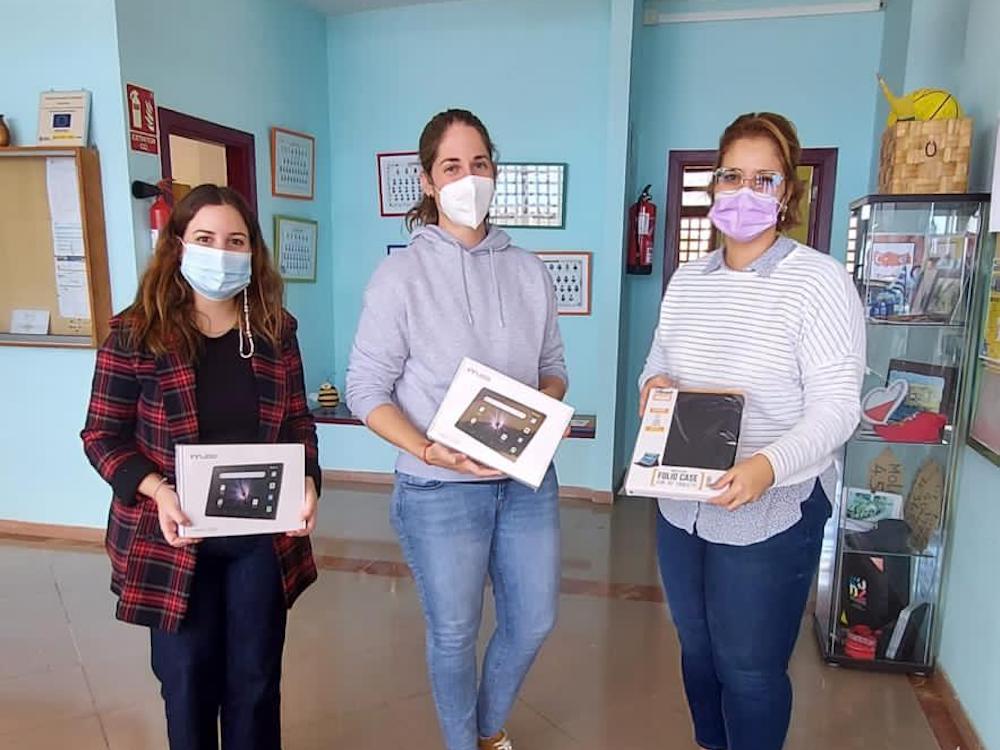
2020 was a year in which the laudable efforts of the Social Welfare Ministry of Guía de Isora were what kept many families afloat in our municipality. With so much uncertainty, already vulnerable populations developed even more acute needs.
Fortunately, the flexibility and dedication of the Social Welfare Minister, Cathaysa Vargas, and her team were able to help many citizens who needed it. We sat down with Ms. Vargas to discuss this past year and the Ministry’s expectations for 2021.
In a year marked by the pandemic, which have been the most urgent needs of the population of Guía de Isora?
As a first step, we centered all our efforts on making ourselves available to the public to understand what their situation was. It was our responsibility to respond to their needs because the local administration, in this case the municipal government, was the only administrative body that never closed during the first period of the State of Emergency. We felt it was our task to alleviate the uncertainty, the fear, and the not knowing what to do.
What did the municipal government’s response consist of this year? Which social programs have been the most important?
The Department of Social Welfare has always run a number of different projects jointly to support the wellbeing of our citizens. This year we tripled the budget designated to social emergency funds and we immediately hired an additional 4 social workers, 3 aides for home care, and a psychologist and physiotherapist to address the needs of the population and respond immediately to them and at their home.
We developed a project to optimize the personal and social competencies of our most vulnerable citizens and another project for the older citizens who were alone. This latter project, called “Rebereque”, was designed to reduce feelings of solitude and loneliness and to foment participation in the community, giving these older people a permanent place in the social sphere.
Have you had success in the coordination of charitable actions with the private companies on the island?
Yes. The response has been great. Since the very beginning there were a number of companies and individuals that got in touch with the local government to offer, for instance, food donations at the beginning of the State of Emergency. And since then, the help that we have requested has adapted to the most urgent needs at the time.
How has the experience of working with Abama Solidaria been throughout the year?
It’s been very positive, because it’s put itself at the disposal of the local government since the beginning to collaborate in addressing the needs of our citizens.
They have undertaken a number of actions designed to help various collectives, especially young people and children. In May, Abama Solidaria donated food and personal hygiene products to the families with children in the municipality. In September, to coincide with the start of school, the organization donated tablets. These were distributed in the educational centers in the municipality so that the most vulnerable children here were able to access educational resources from home and reduce the digital access disparity.
What are the Social Welfare Department’s priorities for 2021, and how can Abama Solidaria help you achieve your objectives?
We are looking at a year that seems it will be complicated in terms of social needs. We are working on our budgets, and the social areas are a priority. Our ultimate objective is to keep working closely with our citizens and the business sector to guarantee that Guía de Isora maintains its level of quality as a destination.
Is Guía de Isora a safe place for tourists to return to? Tell us a bit about what is being done to avoid Covid-19 contagion.
The local government has had a series of measures in place since the beginning of the pandemic to control the area, including a special daily cleaning and disinfection plan for public and leisure spaces. Our citizens have behaved in an exemplary manner, with the incidents of contagion under complete control throughout almost the entire period. Especially over the last few weeks, with the new regulations that are being applied, the police presence has been reinforced in order to keep people informed, help them, and dissuade people from violating any of the protocols. Altogether, this has enabled us to continue considering Guía de Isora a safe place.







